2014.10.20
Anguish of the Coral Reefs and path towards solutions
By E. Heinrich-Sanchez
Super Typhoon Vongfong came and went proving to be one of the strongest storms yet.
I welcome the participants to the International Coral Reef Initiative (ICRI) 29th General Meeting that will take place from today at the Okinawa Institute of Science and Technology Graduate School’s Seaside House where we held the Okinawa NGO Forum as part of the 2013 Blue October.

The book by Makoto Tsuchiya and Yoko Fujita ISBN978-4-486-01896-4 C3045 talks about the plight of coral reefs, their importance and ways we need to co-exist forever.
I have made a membership request on behalf of our organization as we re-vamp our “My Reef Project” Adopt-a-Reef online platform. Dr. Makoto Tsuchiya and Yoko Fujita’s book, ‘Anguish of the Coral Reefs and the Green Fins’ model of stewardship has inspired the re-launch for next June.
http://www.icriforum.org/ICRIGM29
Last Saturday I planned to survey Jyane (Dugong Lookout) Beach at Cape Maeda where we did our first beach cleanup that started the “I Love Okinawa Campaign® 22 years ago, on Oct. 11, 1992, with Okinawa International Clean Beach Club members. My sons were then 4 and 6 years old and I was hoping for clean beaches by the time they became adults. Part of that dream has come true. Thanks to thousands of volunteers including U.S. Forces personnel and their families our beaches are cleaner now.
On Monday, with my daughter now age 5, we picked up less than a bag of small pieces of plastic and miscellaneous bits and pieces, some styrofoam, and plastic PET bottles. Less than a bag compared to the truckloads and tons of garbage (dumped and washed up) picked up and tallied using International Coastal Cleanup Data Cards twenty years ago.
We partnered with the Ocean Conservancy’s campaign in 1994. Now what? As the number of divers/snorkelers has increased in Cape Maeda, we need to establish a new baseline along with a system for sustainable use of this popular spot known for its “Blue Cave”.
No matter how much we pick up, without changing our consumption patterns with our oil based-throw away society, a shift towards a sustainable island society is not possible. Education for Sustainable Development (ESD) is a key that can open the way towards a sustainable 22nd Century. Many people around the world are making attempts at ESD yet for it to be effective, we need to apply those principals in all that we do. Our school children today are more aware, yet teacher trainee programs are still a long way from graduating confident mentors in ESD.
Could English become the catalyst for ESD in our classrooms? This year, Japan’s “English Education Reform Plan” corresponding to globalization, led by a Central Education Council, aims to advance incremental implementation from FY2018 with full scale implementation timed with the 2020 Olympics. http://www.mext.go.jp/english/topics/1343591.htm
Okinawa as a tourist destination and “Diving Mecca” could benefit from “ESD contents based” materials and methods. As part of globalization, more ocean themed experiential learning is at our doorstep, while instilling the love for nature and need for stewardship.
The “My Beach – My Reef Project” Adopt-a-Beach / Adopt-a-Reef Program will be re-launched June 8th, on the World Oceans Day 2015, and will promote the “Green Fins for Management for Sustainability of Coral Reefs and Diving Tourism” from Cape Maeda hoping it will catch on prefecture wide and in Japan. Asia Pacific Initiative/LEAD Japan’s Dr. Kimio Uno assisted by Aoi Sugimoto are working on ways to establish “Green Fins Japan”.
“Green Fins Code of Conduct” (adapted from the Coral Reef Alliance) to dive tour operators, their customers and those who enjoy snorkeling and diving on their own. Green Fins is a UNEP initiative coordinated internationally by Reef-World Foundation (a UK NGO). They have been successful in implementing the program at major dive destinations in the Asia-Pacific regiojns including Philippines, Maldives and Thailand.
We plan to see a Green Fins Japan in the near future. Last year during the 2013 Blue October at OIST, Chloe Harvey (Hunt) introduced the Green Fins model. Cape Maeda has been listed as a pilot site. Last June during the Expert Conference on Development of Island ‘s Sustainable Societies, the Green Fins model was presented by Niphon Phongsuwan, co-chair of the ICRI and an expert from Thailand on Marine Environmental Resources and Coastal Ecosystem Research) did a presentation on their experience in implementation of GF in Thailand.
Local expert Yoshimi Higa and fellow ICRI member from the Onna Village Fisheries Cooperative also presented on some of the pioneering coral conservation efforts led by the cooperative.
We hope for our membership to be accepted in order to report our results at the 30th ICRI General Meeting in Thailand in 2015 as we launch our version of UNESCO’s Global Action Plan on ESD, which will incorporate community based grass root methods for best practices in coastal management.
Comments welcome to edo@okinawaocean.org Page is being re-vamped, sponsors and IT volunteers welcome at http://www.okinawaocean.org/mybeach/

 2024.06.08
2024.06.08 2024.05.25
2024.05.25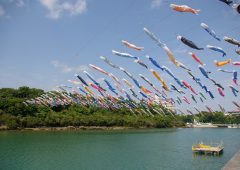 2024.04.26
2024.04.26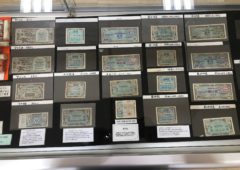 2024.04.22
2024.04.22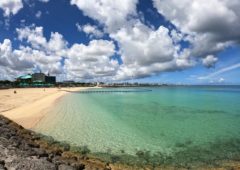 2024.04.10
2024.04.10 2024.01.31
2024.01.31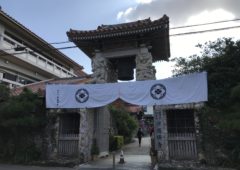 2024.01.02
2024.01.02 2023.12.27
2023.12.27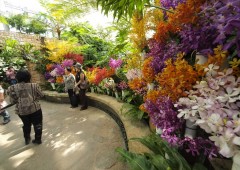 2023.11.16
2023.11.16






